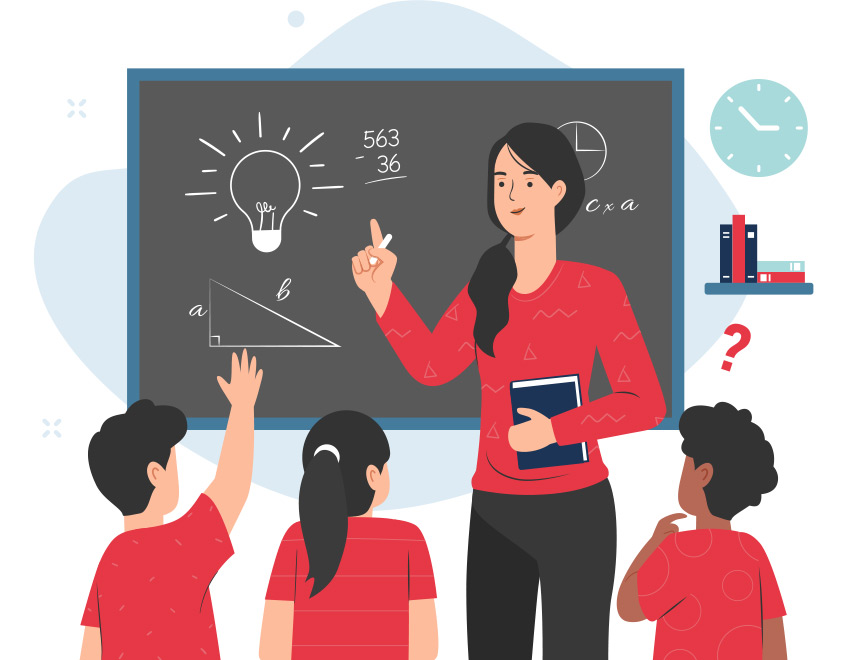Unlock Your Child’s Potential with Primary Science Tuition Singapore
Unlock Your Child’s Potential with Primary Science Tuition Singapore
Blog Article
A Comprehensive Guide to the Numerous Discovering Techniques in Primary Scientific Research Instruction
The exploration of varied understanding techniques in key scientific research instruction presents an opportunity for teachers to improve pupil engagement and understanding dramatically. By analyzing hands-on knowing strategies, inquiry-based strategies, and collaborative strategies, we can determine reliable practices that cater to various learning styles.

Hands-On Knowing Methods
Hands-on understanding strategies play a pivotal role in primary science instruction, engaging students in active exploration and testing. These techniques enable learners to communicate directly with phenomena and materials, fostering a deeper understanding of clinical principles. By using manipulatives, versions, and real-life experiments, instructors develop an environment where trainees can observe, hypothesize, and evaluate their ideas.
Such techniques not just boost understanding yet additionally grow important reasoning and analytical skills. When students take part in tasks like constructing basic equipments, growing seeds, or conducting chain reactions, they are urged to ask concerns and seek solutions with their own observations. This experiential technique assists to demystify complicated scientific concepts, making them much more available and relatable.
In addition, hands-on knowing promotes cooperation among peers, as students typically work in groups to conduct experiments or share findings. This teamwork not just enriches their knowing experience however also develops important social abilities. Ultimately, incorporating hands-on techniques in main scientific research instruction promotes a lifelong love of knowing and curiosity regarding the environment, laying a strong structure for future scholastic pursuits in scientific research and past.
Inquiry-Based Discovering
Inquiry-based learning is a training strategy that encourages trainees to ask inquiries, investigate phenomena, and build their very own understanding of scientific ideas. This approach changes the focus from standard teacher-led guideline to an extra student-centered experience, where learners take the initiative in their academic journey. By cultivating curiosity, inquiry-based knowing advertises much deeper interaction with the product, enabling students to check out subjects in a meaningful context.
In technique, this approach often entails hands-on experiments, monitorings, and important reasoning tasks that straighten very closely with the clinical approach. Pupils are urged to create theories, layout examinations, and assess information, which grows necessary abilities such as analytical and analytical reasoning. The function of the educator in this framework is to facilitate expedition, assisting trainees through the questions procedure while motivating independent thought and collaboration.
Moreover, inquiry-based learning supports a sense of ownership over the discovering process, motivating pupils to go after understanding actively. This approach not only enhances understanding of clinical ideas however also cultivates a lifelong love for knowing, equipping pupils with the skills needed to navigate an increasingly intricate globe.
Collaborative Learning Approaches
Collective understanding methods encourage students to participate in meaningful interactions with peers, cultivating a common responsibility for their educational results. In key science instruction, these methods motivate students to function with each other to explore scientific concepts, solve troubles, and conduct experiments (primary science tuition Singapore). By joining team activities, trainees can utilize varied viewpoints, enabling for richer understanding and retention of scientific understanding
One trick facet of joint learning my latest blog post is the emphasis on interaction abilities. Pupils need to verbalize their thoughts, pay attention proactively to others, and work out ideas, all of which are crucial competencies in both academic and real-world contexts. This social communication not only improves their understanding of scientific principles yet additionally promotes teamwork and conflict resolution abilities.
When trainees see the worth of their contributions within a group, they are more likely to take ownership of their knowing trip. Overall, integrating joint knowing techniques in key scientific research direction grows a vibrant knowing atmosphere that prepares pupils for future academic and social challenges.
Modern Technology Assimilation in Science
The combination of modern technology in main scientific research guideline enhances learning experiences by offering ingenious devices and sources that sustain various teaching methodologies, including joint understanding - primary science tuition Singapore. Using electronic systems, simulations, and interactive applications allows students to involve deeply with clinical principles, facilitating a much more hands-on method to knowing
Online labs, for instance, allow learners to conduct experiments safely and efficiently, promoting inquiry-based learning. These tools can imitate real-world clinical circumstances, enabling trainees to imagine intricate processes that would certainly be hard to duplicate in a standard classroom setup. Technology cultivates interaction and collaboration among pupils, as they can share findings and work with each other on projects via on the internet platforms.
In addition, multimedia discussions and educational video clips can improve lessons by accommodating varied understanding styles, making abstract principles much more available. Information analysis devices additionally equip students to gather and interpret scientific data, strengthening vital thinking skills. Overall, the tactical unification of innovation in key science direction not just enhances interaction yet also prepares trainees for a highly advanced society, outfitting them with important abilities for future clinical endeavors.
Separated Guideline Strategies
Separated guideline techniques are crucial for dealing with the diverse demands of students in key science education. These methods make it possible for educators to tailor their mentor approaches to suit differing abilities, interests, and learning styles within the classroom. By utilizing separated guideline, educators can produce a comprehensive setting that cultivates involvement and boosts understanding of clinical principles.
One effective strategy is to use adaptable organizing, which enables trainees to work together with peers at similar skill levels or with differing viewpoints. This approach encourages peer learning and advertises critical reasoning. Additionally, supplying selections in jobs can equip trainees, enabling them to select projects that reverberate with their interests while still meeting curricular purposes.
Additionally, integrating tiered projects is another beneficial method. By designing jobs with varying degrees of intricacy, teachers can ensure that all pupils are properly tested, regardless of their proficiency. Using formative analyses to evaluate recognizing additional enables instructors to click to investigate adjust their training methods dynamically, making certain that each learner obtains the support they require.
Ultimately, carrying out differentiated direction strategies in main scientific research education not just enhances trainee understanding outcomes yet also cultivates a passion for science, preparing pupils for future scholastic pursuits.

Verdict
In recap, reliable key scientific research instruction requires a diverse technique that includes hands-on discovering, inquiry-based approaches, and joint methods. The combination of innovation and separated direction additionally provides to diverse understanding designs, promoting an environment conducive to exploration and crucial reasoning.
The expedition of varied knowing approaches in key scientific research direction presents an opportunity for instructors to boost pupil interaction and comprehension considerably.Hands-on learning strategies play an essential function in primary scientific research direction, engaging pupils in active expedition and trial and error.Inquiry-based knowing is an instructional strategy that motivates students to ask concerns, examine you can look here sensations, and build their very own understanding of scientific principles.Collective learning strategies empower trainees to engage in purposeful interactions with peers, promoting a shared obligation for their instructional outcomes. In general, including collaborative discovering approaches in key science instruction grows a dynamic discovering environment that prepares trainees for future scholastic and social obstacles.
Report this page